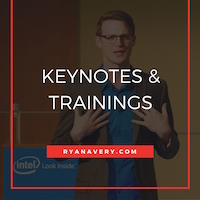
Shifting Mindsets: From “Getting through” to “Getting to”
My wife came up with a really great comparison the other day. In the ebb and flow of daily life, our mindset plays such a pivotal role in shaping our experiences. Consider this: how often do we approach tasks, obligations, or even opportunities with a sense of having to get through it so we can move on to the next rather than getting to do it without thinking of what is next? The distinction between “getting through” something and “getting to” do something might seem subtle, yet it profoundly impacts our outlook and, consequently, our well-being.
The “Getting Through” Mindset
When we approach life with a “Getting Through” mindset, our focus tends to center on obligation and necessity, while also taking us out of the present moment. It is the mindset that creates burdens to be endured rather than experiences to be appreciated. This mindset often leads to feelings of resentment, stress, and sometimes even burnout. Whether it’s work assignments, household chores, or personal commitments, viewing them through the lens of obligation or simply, “let me get through this” can drain our mental and emotional resources.
In the “Getting through” mindset, there’s a tendency to operate on autopilot, simply going through the motions without fully engaging or finding meaning in what we’re doing. This mindset can foster a sense of disconnection from our own experiences, leading to a less fulfilling and more anxious existence.
The “Getting To” Mindset
On the other hand, adopting the “getting to” mindset transforms how we perceive and approach tasks. It’s about shifting from obligation to opportunity, from duty to privilege. When we see things as something we “get to” do, there’s a shift in perspective—the recognition of the inherent value or benefit in what we’re undertaking.
Imagine reframing our daily routine: instead of saying “I have to go to work,” we say “I get to go to work,” acknowledging the opportunity to contribute, learn, and grow. This mindset encourages gratitude and mindfulness, prompting us to be more present in our experiences and to find joy in the seemingly mundane aspects of life. And yes, even on those stressful days this can help us out the most.
Staying Present and Planning for the Future
While embracing the “getting to” mindset enhances our present experiences, it doesn’t negate the importance of planning for the future. In fact, it complements it. Being present involves fully engaging with our current tasks and circumstances, appreciating them for what they are. This mindfulness not only improves our immediate well-being but also allows us to make more thoughtful decisions about our future.
Simultaneously, planning for the future is crucial for setting goals, cultivating aspirations, and creating our sense of direction in life. It involves envisioning where we want to be and taking intentional steps to get there. This balanced approach involves integrating present mindfulness with future-oriented planning, ensuring that we live with purpose and intentionality. We like to say in our family, “enjoy today and plan for tomorrow!”
Why It Matters
The shift from “getting through” to “getting to” isn’t simply about positivity—it’s about cultivating the mindset that promotes resilience, gratitude, and fulfillment. By embracing the mindset of opportunity rather than obligation, we empower ourselves to approach challenges with the more positive outlook and to extract meaning from even the most routine aspects of life.
For me, even in the last few days of practicing this, this mindset creates deeper connection with my own experiences (even the simplest ones) and encourages me to be more empathetic towards others. It has the opportunity to promote culture of appreciation and growth, both individually and collectively.
I fully believe the words we use (mindset) shape our reality. Choosing to see life through the lens of “getting to” rather than “getting through” can significantly enhance our well-being and satisfaction. By staying present in our experiences and simultaneously planning for the future, we strike the balance that allows us to live purposefully and joyfully. So, let’s embrace the opportunity in every task and endeavor—we “get to” shape our lives, one mindful moment at a time.
















